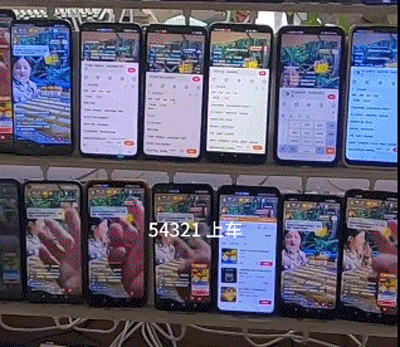
China’s Livestream Industry Has a Fraud Problem
Many of China’s best-known internet celebrities are ripping off both brands and consumers using a range of fraudulent practices, from faking sales figures to selling counterfeit products, a new investigation has found.
Livestream e-commerce — in which influencers sell goods directly to customers via live online shows — has become a massive industry in China, with most consumer brands now viewing it as an essential marketing channel.
In 2023, the Chinese livestream e-commerce market was estimated to be worth 4.9 trillion yuan ($691 billion), up 35% year over year. Nearly 600 million people in China shop via live commerce.
But complaints about dodgy practices in the industry are on the rise, according to the state-owned media outlet Legal Daily. Industry insiders said that livestreamers often use a wide range of fraudulent tactics to deceive both consumers and their corporate clients.
Consumers told Legal Daily they’d been sold shoddy or counterfeit goods. Others claimed that livestreamers had faked sales data to attract customers. One customer said that a livestreamer claimed to have sold over 999 items that day, but in reality the real figure was only a few dozen.
Merchants made similar claims. Several said the livestreamers they’d hired to promote their products had inflated their sales figures to con them into paying high commissions. Others said that a large percentage of the orders they’d received during a livestream were canceled the following day.

Industry insiders told Legal Daily that these issues were rife in the live commerce space, arguing that livestreamers found to be engaging in fraud should face stricter penalties.
Brands can incur huge losses from livestream scams. In January, one brand reportedly paid a celebrity 100,000 yuan to promote their product during a livestream. The company said it had stocked up on 1.7-million-yuan worth of goods, expecting a sales bonanza. But in the end, it only received one order during the show.
According to Legal Daily, an entire industry has emerged to help livestreamers falsely inflate their sales figures. These companies advertise themselves as “promotion services,” using slogans such as “earn money effortlessly by simply tapping your fingers.”
There are also many online stores offering to boost livestreamers’ engagement, selling fake followers, comments, and shares. One hundred likes typically cost 3 yuan, while 10,000 views are sold for 2 yuan. The company also said individuals could earn a few yuan for each fake comment they posted on their behalf.
Influencers also often hire individuals to place fake orders to help them meet the sales quotas they have agreed with their clients, one industry insider told Legal Daily. It is routine for brands to set a specific sales target when hiring livestreamers to promote their products. These contracts typically contain clauses prohibiting order padding, but that doesn’t stop influencers from trying to get away with it, the person said.
Chinese regulators have tried to clamp down on livestream fraud in recent years, introducing measures targeting artificially inflating product sales. In April, the office of the Central Cyberspace Affairs Commission launched a nationwide crackdown that primarily targeted false advertising practices in commercial livestreams.
In July, Chinese authorities also issued a notice announcing a clampdown on fake and inappropriate content in livestreams. The practices singled out for attention included “creating fabricated scenarios and identities for promotional purposes without ethical considerations” and “misleading consumers through the sale of counterfeit or substandard goods.”
He Yuming, a college student in Shanghai, told Sixth Tone that she does 90% of her shopping via livestream channels. But she has encountered several issues with the quality of the goods she has purchased, especially when buying clothes.
On one occasion, He said she had bought a winter coat that had appeared to be made of thick, warm material. But when it arrived, she found the real coat was only thinly padded and looked very different from how it appeared on the livestream.
The student also said she had encountered incidences of livestreamers selling a mixture of authentic and counterfeit goods. She once bought a scarf that she liked via a livestream, and recommended it to her classmates. But the scarves they received were of clearly inferior quality, she said.
Additional reporting: Guo Yishun
(Header image: A click farm inflates engagement figures for a livestream channel. From @南方都市报 on Weibo)










